The Lawn Specialists
Fix Brown Patches in Lawn Fast – Cape Coral
Call at (239) 475-0090
Why Lawns Turn Brown and How to Fix Them
Many Cape Coral homeowners wonder, Why is my lawn turning brown? Brown patches not only spoil curb appeal but also signal that your grass is unhealthy. The problem often comes from pests, drought, or lack of proper nutrients. The good news is, with professional lawn care in Cape Coral services, these issues can be fixed effectively. Our team identifies the exact cause of lawn damage and provides proven treatments to restore your yard to a healthy green.
Common Causes
Intense heat, humidity, and occasional dry spells create specific challenges for lawn vitality. Below are the primary reasons your garden may be turning Yellowish:
Drought and Water Restrictions
Climate often brings extended dry periods, which can cause yards to turn yellowish and dry out in many neighborhoods. Local reports note that long dry spells and limits on well water use make it hard to keep lawns healthy, especially during hot months. Following proper watering practices is essential, and our irrigation services can help ensure your grass gets the right amount of water without violating city rules.
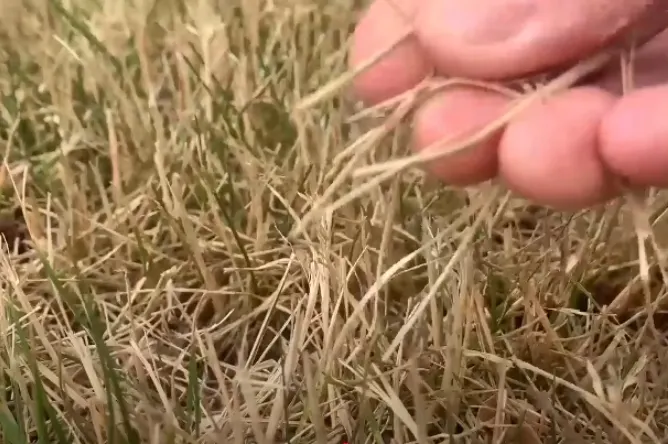
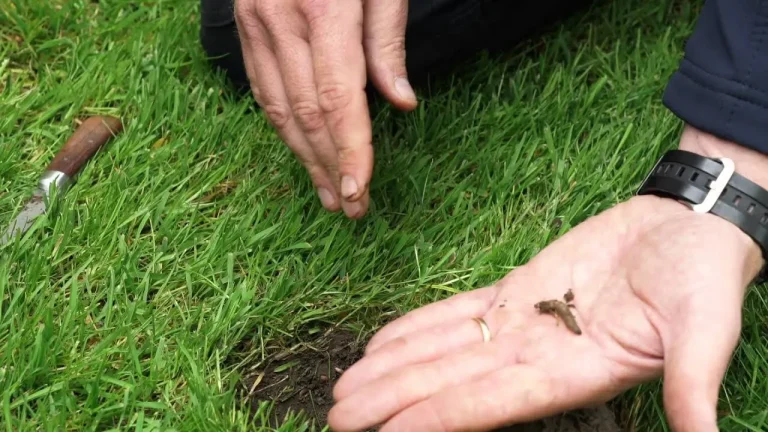
Pest Infestations
Pests like chinch bugs and grubs are common warm climate. These insects feed on greenery roots, causing discolored patches and thinning. Chinch bugs, in particular, thrive in Florida’s heat and can quickly damage St. Augustine or Bermuda grass, which are popular in the area.
Nutrient Deficiencies
Often suffer from nutrient deficiencies due to sandy soils that don’t retain nutrients well. Lack of nitrogen, iron, or potassium can cause greenery to turn yellow especially if not addressed with proper fertilization.
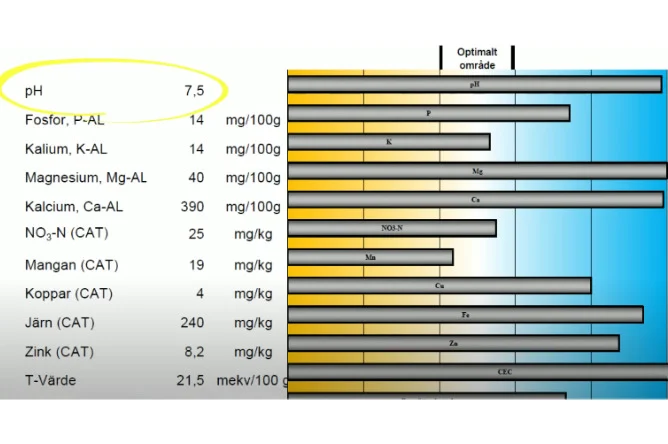
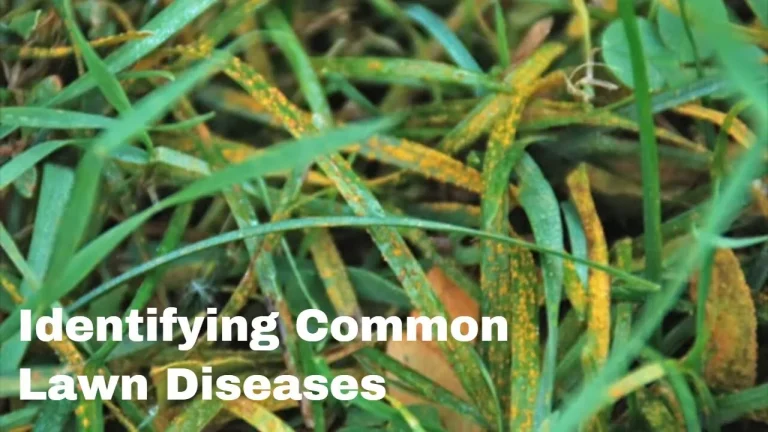
Lawn Diseases
Humidity fosters yard diseases like discolored patch, large patch, or pythium blight. These fungal infections cause circular patches that spread if untreated, particularly during warm, wet seasons.
Improper Watering Practices
Overwatering or underwatering can harm your yard. Daytime watering, prohibited by schedule, leads to evaporation and grass burn. Broken sprinkler heads or poorly set irrigation systems can also create uneven watering, resulting in dry spots.
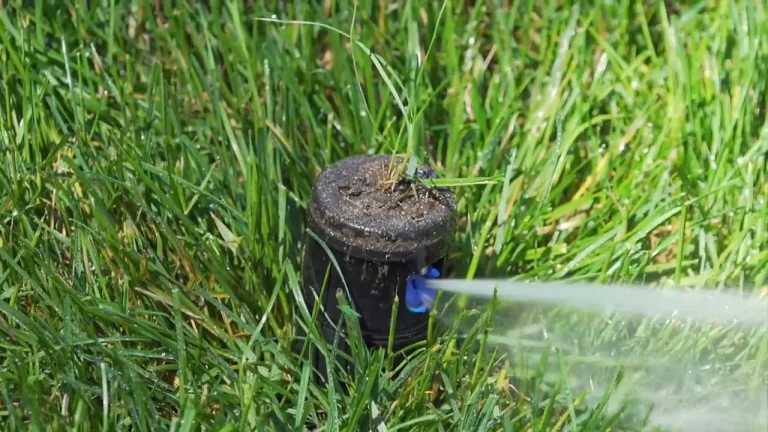

Excessive Heat and Sun Exposure
Intense sunlight and high temperatures stress greenery, especially if it’s not a heat-tolerant variety like St. Augustine or Zoysia. Without proper care, grass can scorch and turn yellow during peak summer months.
Dormancy
Grasses go dormant and turn brown. Cool-season usually grows dormant during summer months, but warm-season during winter months. With the change in temperatures the grass greens up and grows again.
Solution:
Nothing to do. Wait until the changes in temperature appear seasonally, or you can paint your yard to make it look beautiful.
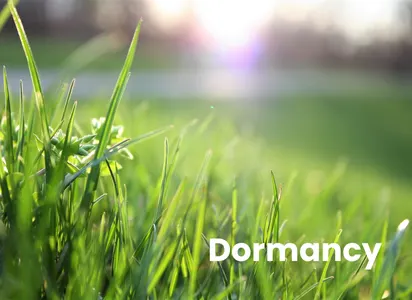
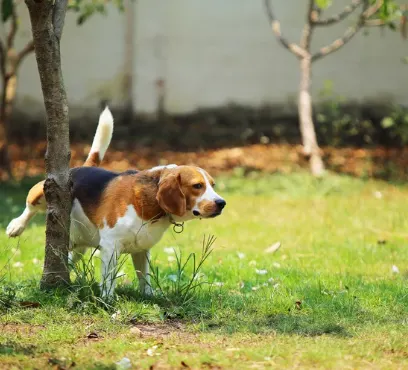
Pet Urine
Dog urine may leave brown spots on lawns because of the high nitrogen content and compounds that change the soil pH.
Solution:
As soon as your dog urinates, you need to wash the area with water using a hose to dilute the nitrogen in the ground.
Cut down on the amount of nitrogen fertilization in your normal routine to reduce the damage.
Train your pet to urinate in one particular part of the backyard to limit the damage to an area that can be controlled.
Gasoline or Chemical Spill
Leaked gasoline or chemicals may kill greenery in an instant spoiling the look of your lawn.
Solution:
Always handle chemicals with care and ensure that containers are not leaking. In case of spillage, it is important to flush the area on spillage immediately with water for at least 20 minutes. Subsequently, put in fresh soil and oversow the ground during the right planting season.
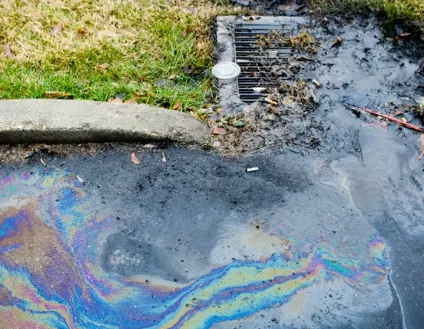
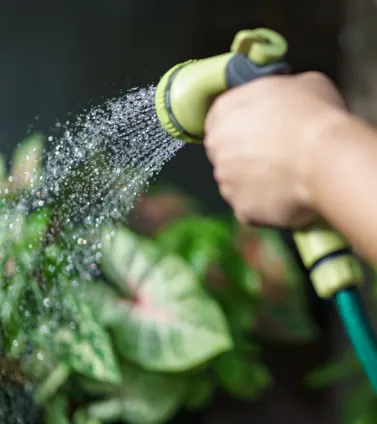
Over Watering or Under Watering
Excessive water may result in puddles or fungus diseases such as brown patch, which causes brown spots. Insufficient water may cause the garden to dry up and die, as well as leaving brown patches.
Fix: Watering habits should be changed depending on over watering or under watering symptoms.
Insects
Grubs: The larvae of beetles (grubs) are a common cause of brown spots in the lawn. These fat, white larvae can cause grass to come up in clumps as a result of their feeding damaging their roots.
Solution:
Look in the soil by digging out a 12-inch square of turf. When you have more than 6 grubs per square foot then it may be required to treat it. Severe infestations enable the turf to be rolled up like a carpet because of cut roots.
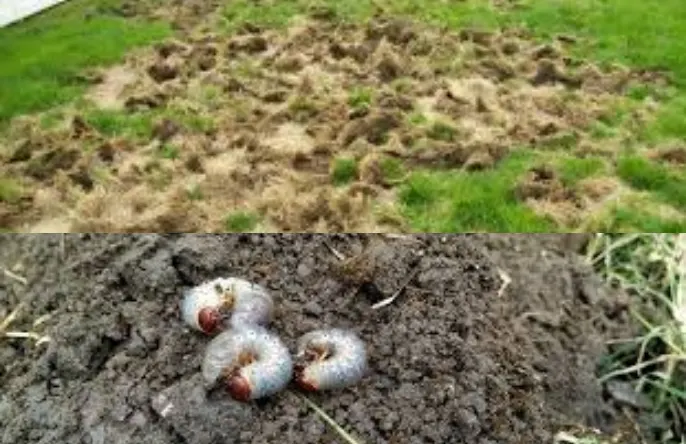
Treatment:
Apply standard insecticides that are available at a home improvement store or contact an organic yard care company to apply beneficial nematodes. The timing is essential and different depending on the species of grub see a lawn care expert or local Cooperative Extension office.
Prevention Tips:
Chinch Bugs
Chinch bugs attack cool- and warm-season lawns, including bentgrass, Kentucky bluegrass, perennial ryegrass, red fescues, and St. Augustinegrass. They deprive the grass of nutrients to leave discoloured spots during the summer.
Solution:
Other Insects
Browning of the lawn by billbugs, caterpillars, and other insects is also possible. The activity of birds or wasps may be a sign of pest problems.
Solution:
Welcome natural predators by placing bird feeders and birdbaths to attract birds that eat garden pests.
In extreme cases, chemical insecticides may be employed to kill off the pest insects but this should be the last option.
How to Fix Them
Restoring a yellow lawn requires addressing the root cause and implementing targeted solutions:
Follow Watering Schedule
Adhering to the city’s watering schedule is critical to avoid fines and ensure your garden gets enough water.
Use smart irrigation systems with soil sensors to water only when needed, improving efficiency and potentially qualifying for a variance from the city’s restrictions. Check your sprinkler heads regularly to ensure even coverage and fix any broken components promptly.
Control Pests with Professional Treatments
Pest infestations require targeted treatments. Our lawn care services include eco-friendly pest control to eliminate chinch bugs, grubs, and other yard damaging insects. Regular inspections and preventative treatments protect your grass from future attacks. For example, we apply industry-leading insecticides that are safe for your family and pets while effectively managing pests.
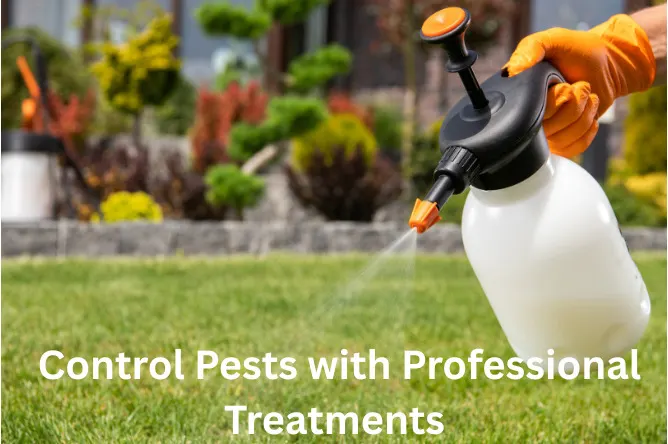
Fertilize for Optimal Nutrient Balance
Fertilization is key to restoring a faded lawn. We use custom-blended, slow-release fertilizers tailored to soil conditions, ensuring your greenery gets essential nutrients like nitrogen and iron. Avoid over-fertilizing, as it can increase water needs and harm the environment by contributing to stormwater runoff. We recommend fertilizing in spring or fall when grasses like St. Augustine and Bermuda are actively growing.
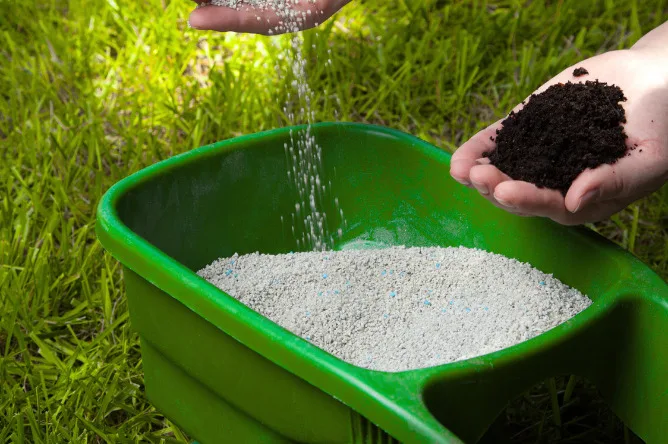
Treat Diseases
If fungal diseases are causing discolored patches, our team can diagnose and treat them effectively. We use fungicides to control brown patch or large patch and recommend aeration to improve air circulation and reduce humidity around grass roots. Aerating in late spring or early summer promotes healthier growth and prevents disease spread.
Aerate and Overseed for Thick Growth
Aeration relieves soil compaction, allowing water and nutrients to reach yard roots. Our aeration and seeding services use high-quality greenery seeds suited for Cape Coral, such as St. Augustine or Zoysia, to fill in bare patches. Late spring or early fall is the best time for these treatments to ensure strong root establishment.
Choose the Right Grass Type
Mowing at the right height prevents stress on your yard. Set your mower to a higher setting (3–4 inches for St. Augustine) to shade the soil and reduce evaporation. Sharp blades ensure clean cuts, promoting healthy growth. Our weekly or biweekly mowing services keep your garden at the ideal height while preventing overgrowth that could lead to code violations.
Why Choose Us?
As a locally owned business, we understand the specific needs of lawns. Our team offers:
Our experienced technicians are trained to handle Cape Coral’s climate, from drought to heavy rainfall, ensuring your yard stays green year-round. We also offer seasonal cleanups, weed control, and irrigation maintenance to keep your yard in top shape.
Regular Maintenance
It is easier than fixing them. Regular maintenance, including proper watering, fertilization, aeration, and pest control, keeps your grass healthy and resilient. Here are some additional tips:
Contact Us for a Lawn Health Check
Don’t let a faded lawn diminish your property’s beauty. Our expert team is ready to diagnose the cause of your garden issues and provide tailored solutions to restore its vibrancy. Whether you need mowing, fertilization, pest control, or irrigation repair, we’ve got you covered.
Conclusion
The issues listed are common causes of browning leaves in indoor and outdoor plants. Many can be fixed with improved care practices. However, diseases or pest infestations may need extra care and preventive steps to avoid recurrence. If you notice unusual changes in your plants, consult a plant expert quickly to prevent further damage and protect your plants.
FAQs
(239) 475-0090)
Contact us for a lawn health check.
